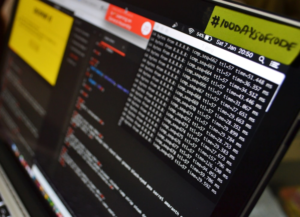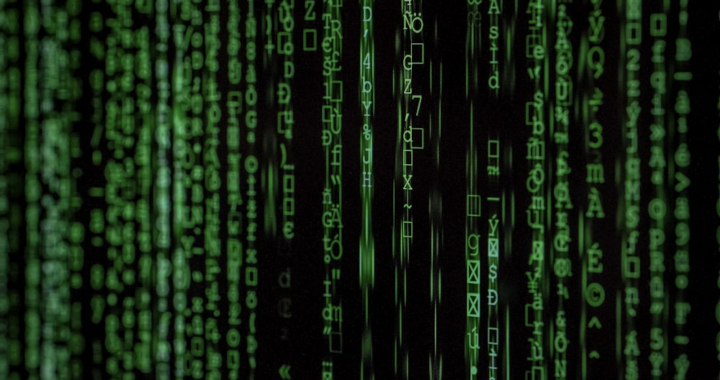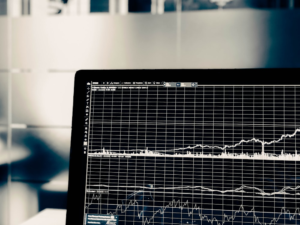Today, a large part of our life unfolds online, which is why the importance of digital forensic services has increased tenfold in recent years. From criminal investigations to civil litigations, digital evidence plays a pivotal role in uncovering truths and delivering justice.
This blog aims to explore digital forensics, shedding light on the collection, analysis, and presentation of digital evidence in courtrooms worldwide.
1. Understanding Digital Forensics
Digital forensics is the process of uncovering, preserving, analyzing, and presenting digital evidence in a legally admissible manner. It encompasses various disciplines, including computer forensics, network forensics, mobile device forensics, and forensic data analysis.
Understanding Digital Forensics is pivotal in comprehending the intricate process of uncovering digital evidence in today’s technologically driven world. At its core, digital forensics involves the systematic examination of digital devices, networks, and data to extract, analyze, and interpret evidence for use in legal proceedings.
This multifaceted discipline encompasses various specialized areas, including computer forensics, network forensics, mobile device forensics, and forensic data analysis.
2. Collection of Digital Evidence
The collection of digital evidence is a meticulous process essential for preserving the integrity and authenticity of information vital to investigations. Forensic experts employ specialized tools and methodologies to extract data from a myriad of digital sources, including computers, mobile devices, and cloud storage.
This phase demands strict adherence to the chain of custody protocols to ensure it remains unbroken, meticulously documenting every step to maintain the evidentiary trail. Employing robust collection techniques allows investigators to lay the foundation for thorough analysis, enabling the uncovering of crucial insights that can play a pivotal role in legal proceedings and the pursuit of justice.

3. Preservation and Chain of Custody
Preservation and Chain of Custody are foundational principles in digital forensics, ensuring the integrity and admissibility of evidence. Preservation involves safeguarding digital evidence from tampering or alteration, often through forensic imaging or documentation.
The Chain of Custody establishes a documented trail that tracks the handling of evidence from collection to courtroom presentation, ensuring accountability and reliability.
Adhering to strict protocols and best practices in preservation is essential for maintaining the credibility of digital evidence and upholding the principles of fairness and justice in legal proceedings.
4. Analysis Techniques
In digital forensics, analysis techniques are the cornerstone of uncovering valuable insights from digital evidence. Forensic experts employ a range of methods, including file carving, keyword searching, timeline analysis, and hash analysis, to meticulously examine data.
These techniques enable investigators to reconstruct digital events, identify relevant information, and establish connections crucial to the investigation.
Through meticulous examination of metadata, file structures, and data patterns, analysts can piece together a comprehensive understanding of the digital landscape, shedding light on critical details that may otherwise remain hidden.
5. Legal Considerations
Legal Considerations in digital forensics are paramount. Adhering to strict legal guidelines ensures the admissibility of digital evidence in court. Investigators must navigate complex legal landscapes, ensuring compliance with laws and regulations governing data collection, preservation, and analysis.
Failure to uphold legal standards can compromise the validity of evidence and undermine the credibility of investigations. Additionally, maintaining transparency and accountability throughout the forensic process is crucial for preserving the integrity of evidence and upholding the principles of justice. Thus, a deep understanding of legal considerations is essential for forensic experts to effectively navigate the intersection of science and law.

6. Types of Digital Evidence
Types of Digital Evidence encompass a wide array of digital artifacts crucial in investigations. From emails and text messages to social media posts and metadata, each form of evidence offers unique insights.
Documents, images, videos, and GPS data also play significant roles in forensic analysis, providing valuable clues and context. Understanding the characteristics and nuances of different types of digital evidence is essential for forensic investigators to unravel the complexities of modern-day cases.
Whether it’s uncovering communication trails or reconstructing digital events, the diversity of digital evidence requires specialized techniques and expertise for thorough examination and interpretation.
7. Challenges in Digital Forensics
There are several challenges in digital forensics, from technological complexities to legal and ethical dilemmas. Encryption, data-hiding techniques, and anti-forensic tools present formidable obstacles for investigators, requiring constant innovation and adaptation.
Moreover, privacy concerns and compliance with legal standards add layers of complexity to evidence collection and admissibility. Balancing the need for thorough investigation with respect for individual rights poses yet another challenge in this field.
Overcoming these hurdles demands a multifaceted approach that combines technical expertise, legal acumen, and ethical considerations, ensuring that digital forensics remains a reliable tool in the pursuit of justice.
8. Admissibility of Digital Evidence
Ensuring the admissibility of digital evidence in court hinges on meeting rigorous legal standards. Authentication, reliability, relevance, and integrity are paramount factors. Documentation must meticulously detail the evidence’s chain of custody and forensic procedures.
Expert testimony clarifies technical aspects and verifies the evidence’s authenticity. Adhering to legal procedures safeguards against challenges to the evidence’s validity. Ultimately, meeting these criteria ensures digital evidence holds weight in legal proceedings, reinforcing its role as a cornerstone in modern jurisprudence.

9. Role of Digital Forensics in Investigations
The role of digital forensics in investigations is significant, as it serves as a cornerstone in unraveling complex cases across various domains. In criminal investigations, digital forensics aids law enforcement agencies in uncovering digital evidence such as emails, chat logs, and geolocation data, which can provide crucial insights into motive, intent, and suspect behavior.
Moreover, digital forensics plays a pivotal role in corporate fraud cases, where it helps identify financial irregularities, uncover fraudulent transactions, and trace digital trails of embezzlement or insider trading.
In instances of intellectual property theft, digital forensics assists in identifying the source of unauthorized access, tracking the dissemination of proprietary information, and establishing liability.
Similarly, in cybersecurity incidents, forensic analysis of digital evidence enables organizations to identify the methods and perpetrators behind cyberattacks, assess the extent of data breaches, and implement measures to mitigate future cyber threats.
Furthermore, digital forensics is instrumental in civil litigation, where it aids in uncovering electronic evidence relevant to contractual disputes, intellectual property infringement, and employment discrimination cases.
Overall, the role of digital forensics in investigations is indispensable, providing investigators and legal professionals with the tools and insights needed to navigate the complexities of the digital landscape and uncover truths that may otherwise remain hidden.

10. Future Trends in Digital Forensics
The landscape of digital forensics is continuously evolving, propelled by advancements in technology and emerging trends, shaping the way we conduct investigations and analyze evidence.
One notable trend in digital forensics is the integration of artificial intelligence (AI) and machine learning algorithms. These technologies enable forensic investigators to automate repetitive tasks, such as data extraction and analysis, streamlining the investigative process and reducing turnaround times.
Another significant trend is the increasing emphasis on blockchain analysis. With the proliferation of cryptocurrencies and blockchain technology, forensic experts are developing specialized tools and techniques to trace digital transactions, uncover illicit activities, and identify cryptocurrency owners. Blockchain analysis has become indispensable in investigations involving cybercrimes, money laundering, and financial fraud.
Furthermore, forensic automation is revolutionizing the field of digital forensics, allowing investigators to scale their operations and handle large volumes of digital evidence more efficiently. Automated tools can sift through massive datasets, flag suspicious activities, and prioritize critical evidence, enabling investigators to focus their efforts on relevant leads.
As digital technologies continue to advance, the future of digital forensics promises more sophisticated tools, techniques, and methodologies that will enhance the capabilities of forensic investigators and bolster the integrity of digital evidence in legal proceedings.
Illuminating the Path Forward
Digital forensics serves as a bridge between science and law, enabling the seamless integration of technology into the legal system. By demystifying the process of collecting, analyzing, and presenting digital evidence, we gain a deeper understanding of its importance in modern-day investigations and courtroom proceedings. As we navigate the complexities of the digital world, digital forensics remains a steadfast ally in the pursuit of truth and justice.
Unlock the Power of Digital Evidence with Eclipse Forensics
Ready to harness the full potential of digital forensic services in your investigations or legal proceedings? Partner with Eclipse Forensics and gain access to cutting-edge technology, data forensic experts, and unparalleled support.
Whether you’re a law enforcement agency, legal firm, or corporate entity, our team of digital forensic consultants delivers comprehensive solutions tailored to your unique needs. Don’t let digital evidence remain a mystery – contact Eclipse Forensics today and disco




























